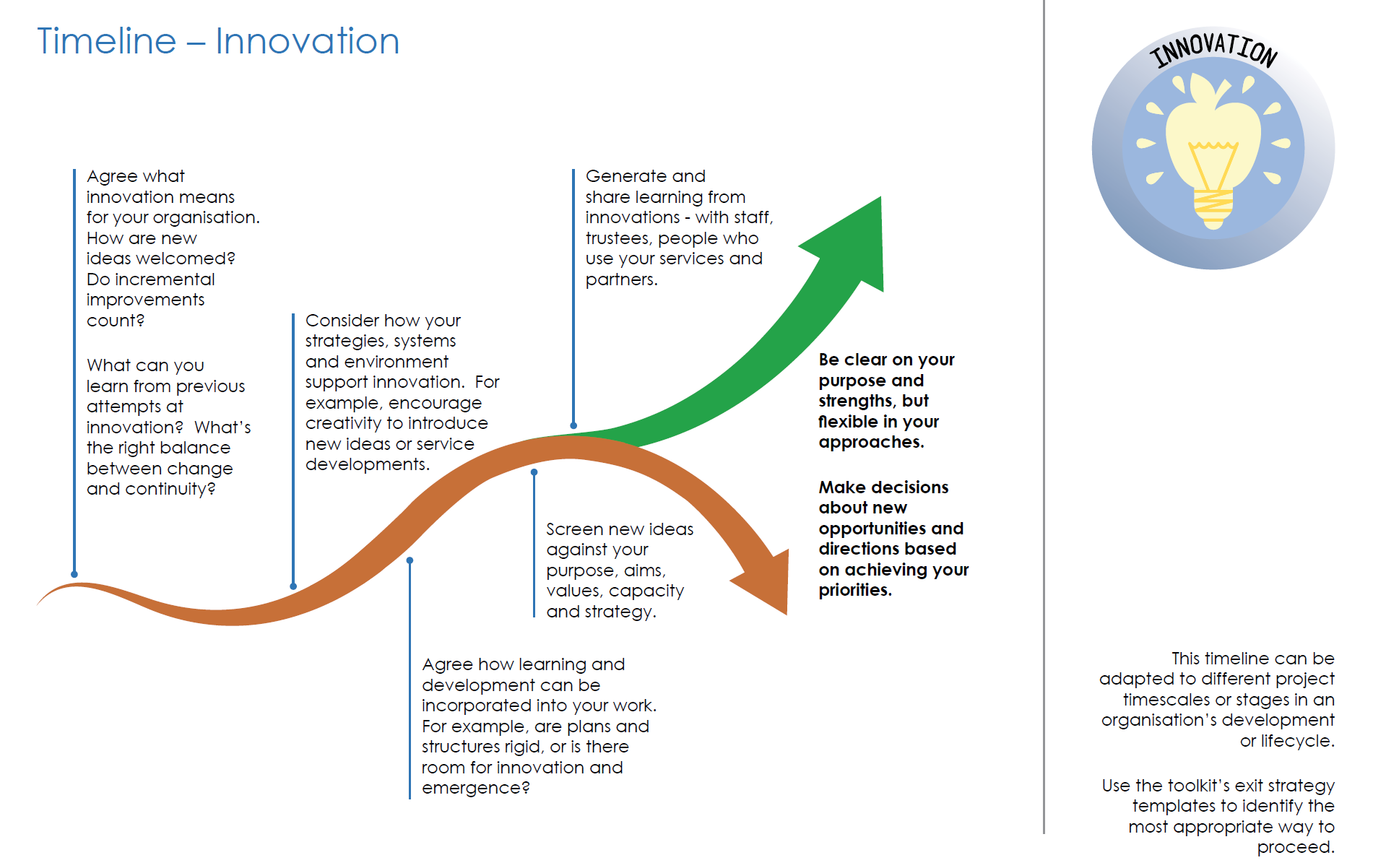Management, Management & leadership, Finance & law, Strategy
Sustainability: innovation
Ahead of his upcoming training course - Charity Survival and Sustainability - Graeme provides the fourth article in a series, introducing the principles and practices of innovation.
We are all creative. But we need time, trust and permission to play – and, at times, to fail!
Innovation gets a bad name because it is often associated with the idea that funders want to support new initiatives rather than established ones. Innovation is gets associated with dressing up old ideas in new ways – the emperor’s new clothes. Some simple principles can help us be clear on innovation and why it matters to sustainability.
Principles
Radical new ideas and breakthroughs are very rare. Most innovation is about incremental improvement – you can only work with what is already there. As Carl Sagan said, ‘If you wish to make an apple pie from scratch, you must first invent the universe.’
People are motivated to make a positive difference and will do so given resources, space and time. But organisational leadership and culture often crush innovation rather than nourishing it. Common mistakes are not giving people the time or freedom to explore ideas, not tolerating failure – or not learning from it. On an everyday basis the main challenge is often than delivery takes precedence over development – this is okay in the short term, but in the long term will lead to organisational stagnation.
Good ideas are everywhere. The brightest people don’t all work for you. Organisations need to have permeable boundaries, allowing people and ideas to flow to and from the external environment.
One of the most useful things I’ve learned is to recognise that there’s a time for ‘going wide’, with divergent thinking opening up new ideas. There’s a place for visionaries, people who always have new ideas to explore, asking ‘What if…’. But just as importantly, there’s a time for converging, narrowing down and selecting options. This means there’s a place in innovation for people who are more skilled at appraising ideas and asking ‘Yes, but…’. Knowing which stage you are in at any point in time – and which is your natural preference – is really helpful for avoiding confusion and conflict.
Practices – ideas for action
- Develop a supportive and trusting culture of learning.
- Encourage experimentation, play, and sensible risk taking.
- Collaborate to innovate. Encourage creative debate. Seek out and listen to different perspectives.
- Agree the outcomes and vision for innovation – and then get out of people’s way!
- Pilot ideas – do small tests of change – fail fast.
- Change your routines, get out of the office – meet and work in places that nurture creative thinking.
- Recognise overload and deal with it before generating more ideas. Give yourself and others the time and space to think, read, reflect, ponder and recharge.
- Screen new ideas against your core purpose, aims, values and capacity.
The timeline below, taken from the free Lasting Difference toolkit, shows that there’s always something you can do about innovation, wherever your organisation is in its lifecycle.
Click on the image below to enlarge
Join Charity Survival and Sustainability
Brand new for 2020, Charity Survival and Sustainability is a one-day workshop taking place on Tuesday 7 April to help you understand, assess, prioritise and implement strategies to tackle sustainability. You will even receive one copy of Graeme’s book – Making a Lasting Difference.


